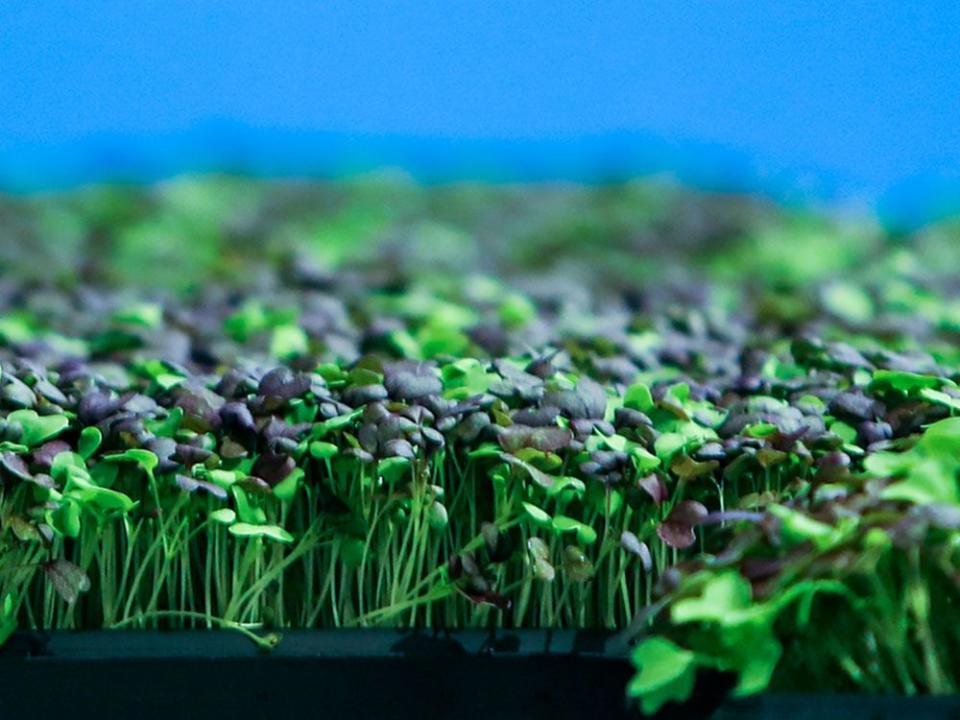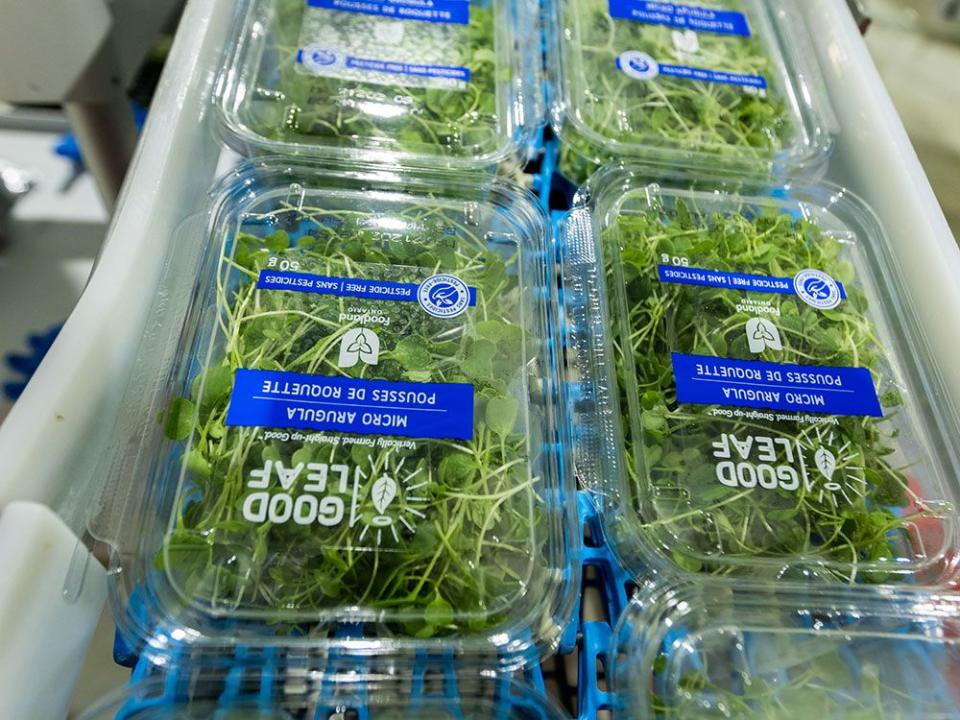Indoor lettuce farm GoodLeaf gets backing from two Canadian heavyweights to expand nationally

GoodLeaf Farms, an indoor farming operation in Guelph, Ont., has raised $150 million to expand its line of lettuce and microgreens into a national brand, backed by the french-fry empire McCain Foods Ltd. and the agriculture investing arm of Quebec insurance giant Power Corp.
GoodLeaf currently sells its packaged greens at grocery chains and restaurants across Ontario, but the major capital injection will help cover the cost of building two new vertical farms, which are already underway in Calgary and Montreal, adding thousands of tonnes of production capacity and extending the GoodLeaf brand into Quebec and Alberta.
The company announced the new round of capital investment on Wednesday morning, after securing more funding from McCain — which had already invested more than $65 million since 2018 — as well as from Power Sustainable Lios, a fund run by the sustainable agriculture wing of Power Corp., the Montreal-based financial services firm run by Quebec’s Desmarais family.
“We’ve always been very confident that we would be able to go and raise the money needed to expand the network,” said Barry Murchie, the chief executive of GoodLeaf Farms and its parent company Bedford, N.S.-based TruLeaf Sustainable Agriculture Ltd.
If GoodLeaf manages to pull off a profitable national expansion, Murchie expects doors to open around the world, with opportunities to export the technology or open farms in other countries focused on growing food or even inputs for the pharmaceutical industry. But perhaps more importantly for Canada, a successful national indoor farmer would provide some hope.
“When we have a proven national network in Canada, I think it becomes a beacon for the rest of the world,” Murchie said in an interview. “We become recognized as the company that has figured it out.”
Supply chain analysts, grocers and scholars are afraid that Canada’s dependence on imported fruits and vegetables from California is going to become a problem as climate change progresses and drought and disease slash crop yields in the region. This fall, for instance, a viral outbreak in California’s Salinas Valley wiped out a massive chunk of the lettuce harvest, resulting in a North American shortage that caused iceberg and romaine prices to spike in Canada.
The ridiculous prices — a bag of three romaine hearts was going for $14.99 in late November at one Ottawa Valley grocer — were a “wake up call” for Canada, one fruit and vegetable lobby group conceded last month.

Some outdoor experts believe vertical farming is the way out. The way most operations work, plants are stacked one on top of another, nurtured by LED lights, which allows the vertical farm to produce acres and acres’ worth of crops in a compact warehouse. Those warehouses can be set up on cheap land, on the outskirts of cities and towns, close enough so that they can be in stores within a day of being harvested.
But vertical farming has started to lose its shine for some investors, after a handful of high-profile American startups, including AppHarvest Inc., crowed about ambitious growth plans but have so far failed to deliver.
Jonathan Belair, managing partner at Power Sustainable Lios, said GoodLeaf is different, with a “superior product” that is already in Canada’s top grocery chains, including Loblaw Companies Ltd., Metro Inc., Empire Co. Ltd. and Amazon.com Inc.’s Whole Foods.
Belair wouldn’t say exactly how much of the $150 million his firm is covering, but he did say that his plan is to make investments in the $25- to $50-million range. The GoodLeaf investment is the fund’s first publicly announced investment. Belair also confirmed that Power Sustainable is the largest investor in this round of funding, followed by an investment by McCain and debt from “some great financing partners.”
“We’re the majority of that equity,” Belair said. “We’re a meaningful minority shareholder.”
Canada’s lettuce problem: What a $15 bag of romaine says about our food system
How something as common as rain in Vancouver can send shockwaves through Canada’s entire food system
GoodLeaf has become a jewel in McCain’s growing portfolio of investments in new agriculture technologies and plant-based food innovations. Last year, Peter Dawe, McCain’s chief growth and strategy officer, said McCain has be able to expose GoodLeaf to its vast network of contacts in the grocery and fast-food world, with McCain sales reps now able to pitch GoodLeaf salad greens to restaurants along with their french fries.
Belair, as well as Murchie, the GoodLeaf CEO, were both executives at McCain who were involved in the food company’s previous investments in GoodLeaf, before landing in their current roles.
• Email: jedmiston@nationalpost.com | Twitter: jakeedmiston
Listen to Down to Business for in-depth discussions and insights into the latest in Canadian business, available wherever you get your podcasts. Check out the latest episode below:

 Yahoo Finance
Yahoo Finance 